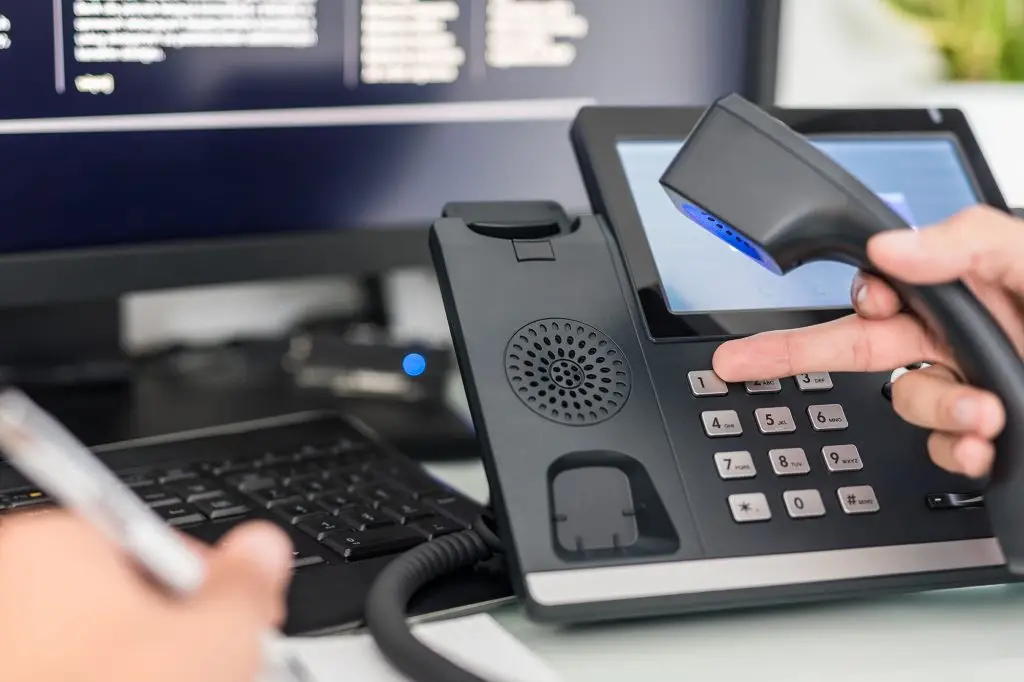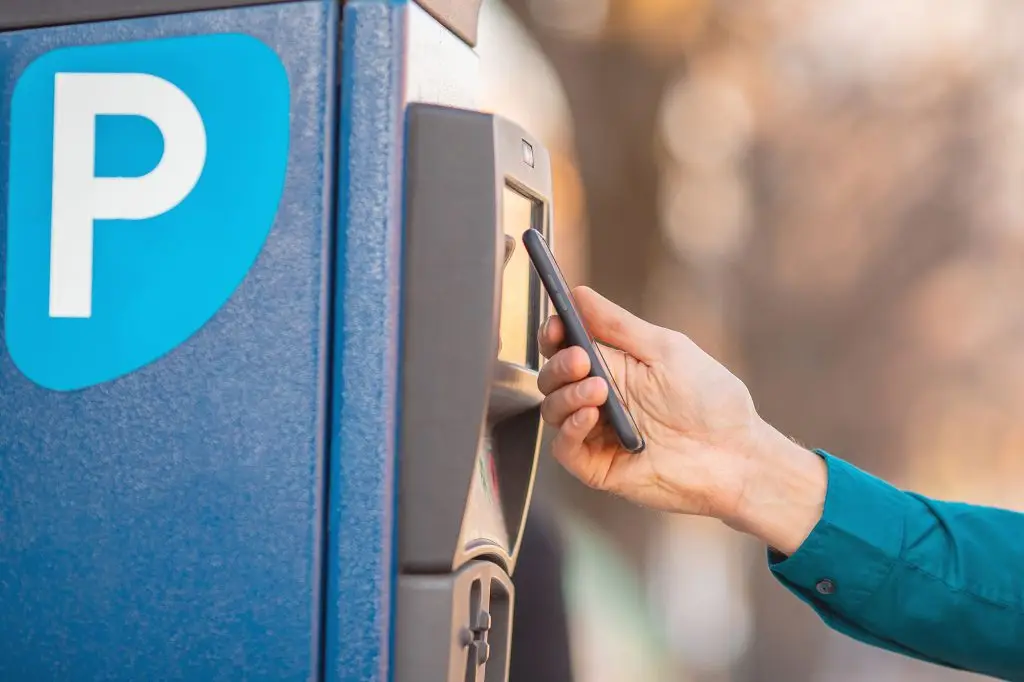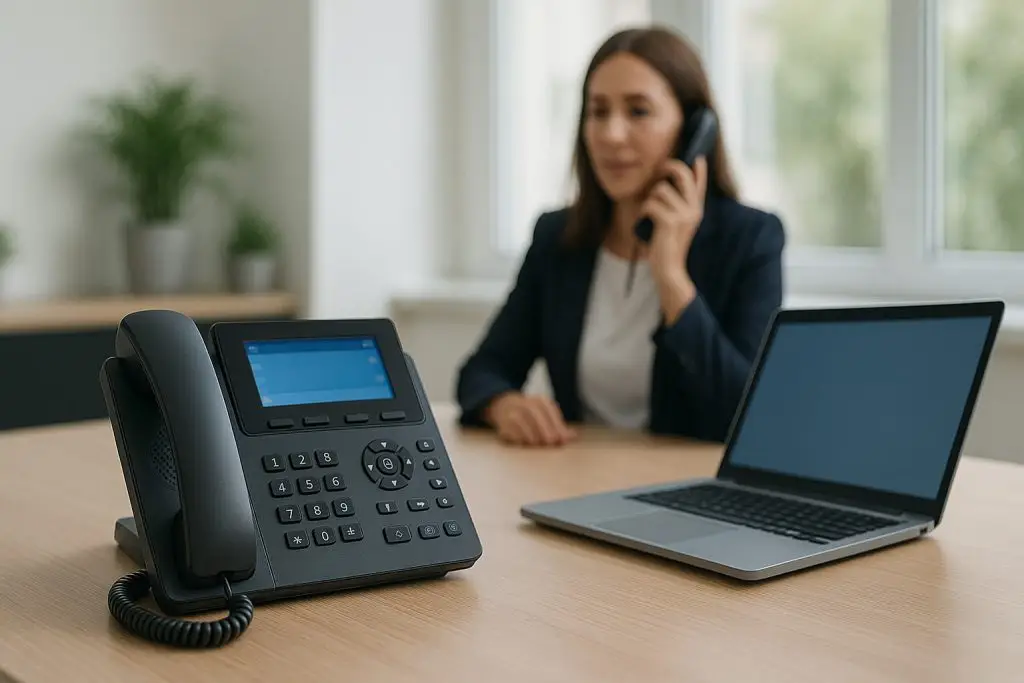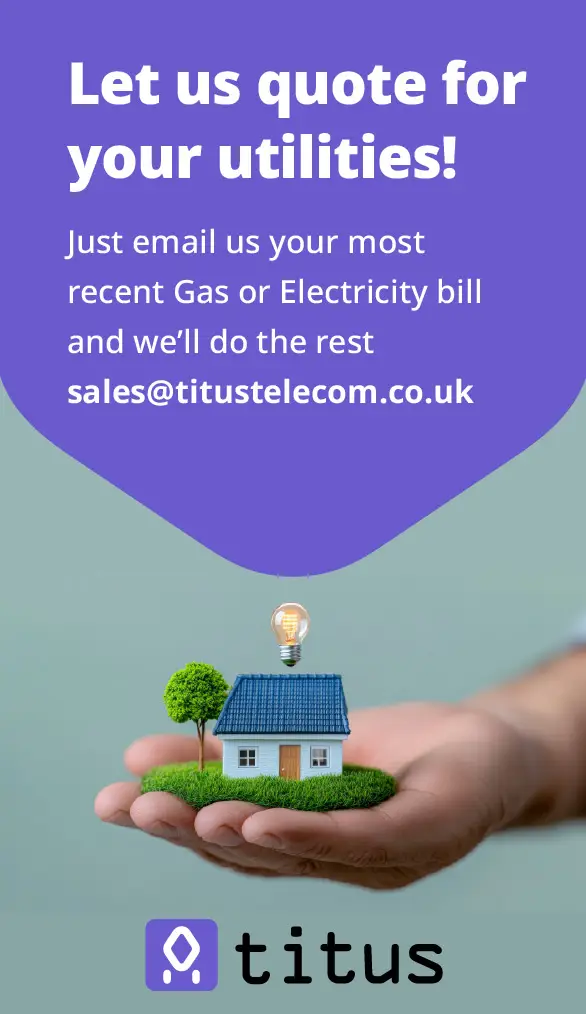
Retail Business Phones and Telephony Systems
Upgrade your retail business phone systems and telephone systems. Enhance customer experience with reliable communication, from calls to messages.
The Titus Telecom Advantage for Retail
Communications on the Move
Empower your staff to answer calls on any device, from any location. Your team stays connected on the shop floor, in the office, or remotely.
Professional Call Handling
Impress customers with intelligent call routing and a professional auto-attendant. Ensure every caller reaches the right person quickly, preventing missed calls and lost sales.
Unified Communications
Connect your phone system directly with your CRM and Microsoft Teams. Streamline workflows and boost productivity by managing calls and customer data all in one central place.
Need Help Choosing the Right Telecom Solution?
Use the form below to tell us what you need help with. Whether you’re setting up business telecoms for the first time or reviewing your current setup, we’ll give you a clear, useful answer to help you make the right decision.
How a Retail Shop Improved Calls with Titus
The Challenge:
A busy retail shop relied on an outdated telephone system that dropped calls during rush hours. Staff found it hard to route calls quickly, leading to long wait times and frustrated customers.
What Titus Did:
Titus upgraded the shop to a modern VoIP phone system with smart call routing, call forwarding and clear voicemail. Staff now handle incoming calls with ease, transfer customers to the right person and keep lines open at peak times. The result is faster service and happier customers.
See What Our Clients Are Saying
I use Titus Telecom for my personal mobile phone, I was so impressed with the service, I switched my internet and phones for my small business to them. Everything works as it should, but the standout for me is the service Titus provide. The installation of the phone system came with face-to-face training and Karen was more than happy to hang around and check everyone in the team was happy with the new handsets. Karen helped set everything up including landlines transferring to mobiles via an app, voice mail and holiday closure messages. The team at Titus are really responsive – highly recommended.
Fantastic company! Super helpful and knowledgeable and i find unlike most other suppliers Titus constantly try to save you money rather than cost you more! It is really quite lovely. Biggest praise to Karen who literally bends over backwards to make sure we are happy and any little issues are generally resolved in minutes! 1st class service- would 100% recommend!
Very good customer service and well-priced. Would definitely recommend.
Retail Shop Telecom solutions
Reliable telecom solutions covering broadband, VoIP, phone systems, mobile, and IoT – built to support how you work.
Optimising the Retail Business: Choosing the Right Telephone System
In the competitive retail sector, customer experience is paramount.
While much focus is given to in-store and online presentation, the telephone remains a critical point of contact for enquiries, stock checks, supplier coordination, and resolving customer issues.
A professional and efficient phone system is not merely an operational tool; it is a cornerstone of customer service and business communication.
This article explores the landscape of modern telephone solutions, moving beyond traditional setups to the advanced capabilities of VoIP.
It will examine the essential features, integration possibilities, and strategic benefits of implementing a phone system designed to meet the specific demands of a retail business, ensuring you can make an informed decision for your company’s growing business needs.
1. What Should a Retail Business Phone System Deliver?
At its most fundamental level, a phone system for a retail business must be reliable and deliver clear audio, enabling staff to make and receive calls without issue. For a small business, such as a single boutique, this requirement might be met with a simple phone line, whereas a larger retail business with several locations will need a more intricate network.
It is crucial that the system handles incoming calls effectively, especially during peak trading hours, so that customers are not left in a long queue or unable to connect at all.
It must also project a professional image, using features that guide callers to the correct person or department, whether that’s the main shop floor, the stockroom, or a central office.
Beyond these basics, the ideal retail phone system must be flexible. Retail is a fast-paced environment, and staff often need the ability to answer calls while on the shop floor, away from a fixed desk.
This makes the freedom to manage communications across various devices, including mobile devices, incredibly important.
The chosen system should also be scalable, capable of expanding as the business does, whether that involves adding new phone numbers for another retail location or enabling more advanced features as the company’s communication needs evolve.
Ultimately, a good phone system should simplify communications, freeing up your team to concentrate on their most important task: serving customers.
2. Traditional Analogue Systems vs. A Modern VoIP Phone System: What's the Difference?
The communications infrastructure in the UK is in the middle of a major transformation. The traditional phone system, which operates on the Public Switched Telephone Network (PSTN) – the familiar network of copper wires – is being phased out. Major providers, including BT, are moving towards an entirely digital network.
This change makes the choice between a traditional setup and a modern alternative more critical than ever. Traditional phone systems, for all their familiarity, are functionally limited.
They are physically tied to a location and a specific phone line, offering the basics but little in terms of flexibility or integration with other business tools.
Adding new lines or features often requires expensive and disruptive on-site engineering work.
In stark contrast, a modern business phone system, which is almost always a VoIP phone system, works in a completely different way. VoIP, standing for Voice over Internet Protocol, sends and receives calls over the internet instead of through old copper wires.
This fundamental technological shift unlocks a vast range of advanced capabilities. As it is based in software, a VoIP system is far more flexible.
It can be accessed from any location with a stable internet connection, using a desktop application, a mobile app, or a dedicated VoIP handset.
For a retail business, this location independence is a significant advantage.
The technology, often called a cloud phone system or a virtual phone system, centralises management, makes expansion simple, and frequently leads to lower call costs, particularly for international calls.
3. How Can a VoIP System Enhance the Retail Customer Experience?
A VoIP phone system can have a direct and significant impact on the quality of your customer experience. One of the most powerful features is advanced call routing, which allows a retail business to design smart pathways for every call that comes in.
For instance, an auto-attendant can provide a professional greeting and offer callers a simple menu of options, like “Press 1 for our opening hours, Press 2 for the menswear department, or Press 3 for customer services.”
This directs callers to the right destination quickly, reducing frustration and saving staff from having to answer the same questions repeatedly.
In addition, features like call queuing become invaluable during busy periods.
The system can manage a high volume of calls by playing a message or music and informing the customer of their position in the queue, preventing them from hearing an engaged tone and calling a competitor instead.
Voicemail-to-email functionality ensures that even if a call is missed, a message is instantly converted to an audio file and sent to a designated email address, enabling a prompt response.
When you integrate the VoIP system with a Customer Relationship Management (CRM) platform, an employee can see the caller’s purchase history on their screen, leading to a much more personalised and effective conversation. This level of service is key to building loyalty and delivering the best customer experience.
4. What Are the Key Features of the Best Business Phone Systems for Retail?
The best business phone systems available for retail are set apart by a collection of features designed for efficiency and professionalism. Looking beyond the call routing and voicemail options already covered, several other tools add immense value.
Call Recording: This can be an indispensable tool for training staff on customer service etiquette, for quality monitoring, and for resolving any disputes by providing a clear record of what was said.
Call Forwarding: This enables calls made to a primary business telephone number to be automatically redirected to another number, like a manager’s mobile, ensuring no critical call is missed, even outside of standard opening hours.
Conference Calling: This allows for straightforward and effective meetings between staff at different sites, or with suppliers and partners, removing the need for separate software.
Video Conferencing: Now a standard feature in many unified communications platforms, this facilitates face-to-face meetings and collaboration, useful for anything from internal training sessions to detailed supplier negotiations.
Analytics and Reporting: A modern VoIP system can provide detailed data on call volumes, average wait times, missed calls, and call durations. This information is vital for spotting customer contact trends and ensuring you have the right number of staff available at the right times.
These capabilities, often found within a single communications platform, offer a complete phone solution that supports the wide-ranging activities of a busy retail operation.
5. Can I Integrate a New Business Telephone System with My Existing Business Tools?
Yes, the ability to integrate a phone system with other business software is a defining characteristic of a modern VoIP service. This is a vital point for any retail business that wants to streamline how it operates and use its data more effectively.
Integration elevates the phone system from a simple, standalone utility into a central part of your business communication strategy. The most common and powerful example is CRM integration.
When an existing customer calls, the phone system can recognise their number and automatically bring up their entire history on the employee’s desktop screen before the call is even picked up, providing immediate context for a more personal and productive conversation.
The potential for integration extends to other key business tools as well. For example, a business telephone system can connect with e-commerce platforms, giving staff instant access to order details when a customer calls with an enquiry.
Integration with collaborative platforms such as Microsoft Teams enables employees to make and receive external calls directly from the Teams interface they already use for internal chat and meetings.
This approach helps to build a truly unified communications environment, cutting down on the time wasted switching between different applications and improving overall workflow.
When selecting a system provider, it is crucial to discuss your current software to ensure you can achieve this level of seamless integration.
6. How Does Advanced Call Routing Benefit a Multi-Location Retail Business?
For a retail business operating more than one store or from a separate head office, advanced call routing is not just a helpful feature – it’s essential for operational synergy.
A well-configured VoIP system can manage incoming calls across the entire company in an intelligent way. For example, location-based routing can identify where a person is calling from and direct them to their nearest retail location automatically, improving the local customer experience.
Time-of-day routing ensures that once a store has closed, any calls to its number are automatically sent to another branch that is open later, or perhaps to a central voicemail.
This technology also makes it possible to use a single, national phone number that promotes a unified brand, while the system works behind the scenes to distribute calls to the right local teams.
For customer service departments, skills-based routing can be used to send calls about a specific product to a trained specialist, no matter which store they happen to be working in.
This ensures the caller gets to speak to the most knowledgeable person on the first attempt.
Having such a flexible phone system means a multi-location retail business can operate with the agility and responsiveness of a single, highly organised entity, combining central control with excellent local service.
7. Is it Possible to Use Microsoft Teams as a Business Phone Service?
Yes, it is absolutely possible to use Microsoft Teams as a comprehensive business phone service. Many organisations already rely on Teams for their internal collaboration, from instant messaging to file sharing and video meetings.
By adding the necessary Microsoft Teams Phone licence and connecting it to the public telephone network via a provider, it transforms into a powerful office phone system.
This functionality turns the familiar Teams app on a desktop computer or mobile device into a ‘softphone’, fully capable of making and receiving external calls to and from any phone number in the world.
For a retail business already using the Microsoft 365 suite, this is a very compelling option as it creates a genuine unified communications platform. It allows staff to manage every conversation – internal and external, voice and text – from one application.
All the features you would expect, like call transfer, voicemail, and call queues, are available directly within the Teams interface.
This integration means an employee could be on a voice call with a customer while simultaneously messaging a colleague in the stockroom to resolve the query in real-time.
This approach simplifies the technology used across the business, reduces training requirements, and can boost productivity by consolidating all communication tools.
8. What Hardware is Required for a Retail Phone System?
The hardware needed for a modern retail phone system is flexible and really depends on your specific operational needs.
One of the greatest advantages of a VoIP phone system is that it can significantly reduce the dependence on proprietary, and often expensive, hardware.
You generally have several options to choose from:
VoIP Handsets: These devices look and operate much like a traditional office telephone but are built to connect to the internet via an Ethernet cable rather than an old-fashioned phone line. They provide excellent voice quality and often feature display screens for accessing advanced functions. This is a great choice for a reception desk, office, or other fixed workspaces.
Softphones: A softphone is simply a software application that runs on a computer or mobile device, replicating all the functions of a physical handset. Users typically use a headset with a microphone plugged into their computer to make and receive high-quality phone calls. This is the perfect solution for staff who need to be mobile around the shop floor or for creating a clean, minimalist workspace.
Analogue Telephone Adapters (ATA): If you have existing analogue phones that you want to continue using, an ATA can bridge the gap. This small device connects your traditional phone to your internet router, converting the analogue signal into digital data that the VoIP service can use.
The one core requirement for all of these options is a stable and robust internet connection. The amount of bandwidth you’ll need will depend on how many simultaneous calls you anticipate making.
A good system provider will be able to assess your situation and advise on the most suitable hardware mix for the different roles within your retail business.
9. Setting Up Your New Phone System: What's Involved?
Fortunately, the process of setting up a new VoIP phone system is usually far simpler than that for a traditional telephony network. Because the entire system is managed in the cloud, there is very little on-site installation of bulky or complex hardware, like an old private branch exchange (PBX) unit.
The setup process is mostly handled by your system provider, who will configure your new phone solution remotely based on your specific requirements.
This includes establishing your call routing rules, recording auto-attendant menus, creating voicemail boxes, and setting up individual user accounts.
If you opt for new VoIP handsets, it is often as simple as ‘plug and play’ – you just connect the handset to a power source and your internet connection.
If you choose softphones, the process involves downloading and installing an application onto your computers or mobile phones. A crucial part of the setup is the ‘porting’ of your existing phone numbers.
This is a fully managed process where your current numbers are transferred from your old provider over to the new VoIP service, ensuring you keep your established business identity without any service interruption.
A reliable provider will oversee this entire process, deliver any necessary training, and ensure a smooth and seamless transition to your modern business phone system.
10. Frequently Asked Questions About Phone Systems for Retail
Can I keep my existing business phone number?
Yes, in almost all cases, you can keep your existing telephone numbers when you switch to a new phone system, including a VoIP system.
The technical term for this is ‘number porting’, and it is a standard process that will be fully managed by your new system provider.
What happens if my internet connection goes down?
This is a common and valid concern when considering a VoIP system. However, any robust VoIP service will have resilience built-in.
For example, you can set up call forwarding rules that automatically and instantly redirect all incoming calls to a designated mobile number or a group of alternative phone numbers if your primary internet connection fails, ensuring business continuity.
Is a VoIP telephone system expensive?
A VoIP phone system is very often more cost-effective than its traditional counterpart.
There are generally lower upfront hardware costs, and the call charges, especially for national and international calls, are usually significantly cheaper.
Monthly subscription plans can be scaled to the number of users you have, making it a predictable and manageable operational expense.
Given the move away from BT’s old network, investing in a new phone system based on VoIP is also the best way to future-proof your communications.
Do I need a technical expert on staff to manage a VoIP system?
No. One of the most significant benefits of a cloud-based VoIP phone system is that the provider manages all the complex technical aspects.
Day-to-day administration is typically handled through a simple and secure online portal, which allows you to add or remove users, change call routing instructions, or view reports without needing any special technical knowledge
This frees up valuable time for you and your team.






